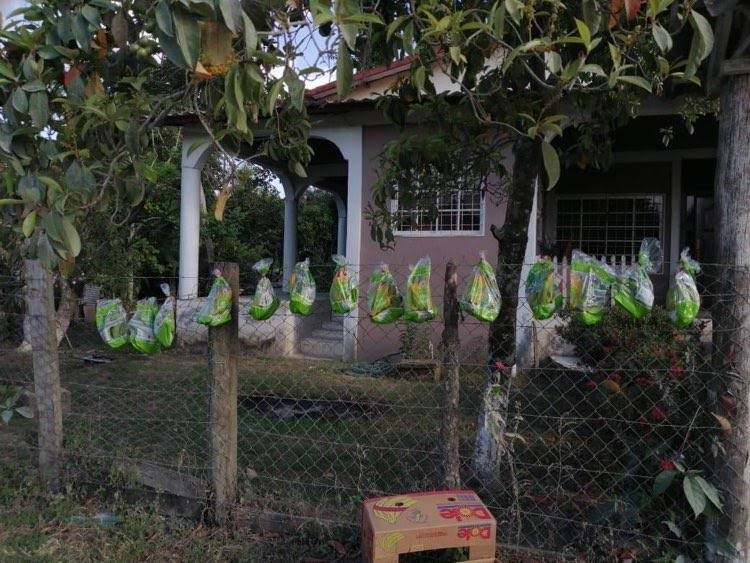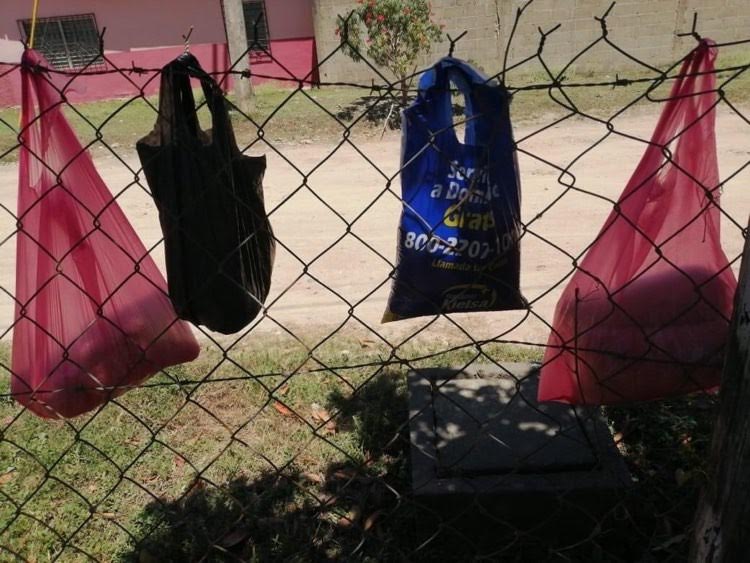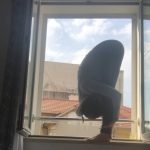April 4, 2020 – Do foreigners in Croatia feel more or less safe sitting out COVID-19 here than in their home country, and what are their experiences? A new series on TCN, with Monique Laffite from Honduras as our 24th contributor.
Oxford University recently published some research on government responses to coronavirus which showed that Croatia currently has the strictest measures in the world. While inconvenient, this is a good thing in terms of reducing the spread of the virus, and I am certainly not alone in my admiration of the official Croatian handling of this crisis in recent weeks, both in terms of action and communication.
But what do other expats here think? And how does it compare with the response in their home country? Would they rather sit this one out here or there? In the first of a new series on TCN, we will be featuring expats from all over the world to see what their views are on life in corona Croatia rather than back home. So far we have heard from expats in Croatia from Romania, USA, Ireland, UK, Mexico, Argentina, Spain, Singapore, Holland, Canada, India, Hong Kong, Venezuela, Latvia, China and Germany. Next up, Monique Laffite from Honduras in Split.
If you would like to contribute to this series, full details are below. Now, over to Monique.
I am from Honduras, of course I feel safer here than in my home country. Oh, you mean because of Covid-19? Meh. Honduras follows stricter rules than Croatia but I feel as safe here as I would in Honduras, as long as I am healthy.
We have self-isolated, and become more aware of how we interact with people, and follow the guidelines of the experts. I feel safe here because of the measures I have taken for myself. But would I feel safer in Honduras if I became sick? Maybe.
I think speaking the language is key, and although pricam malo Hrvatski and get by with it, I think when your life is on the line, its best to know exactly what you are saying. The experience scares me more than the virus.
Firstly, how are you? Are you alone/with someone? Tell us a little about your situation and sanity levels.
I make tacos for a living and tacos, righfully so, are deemed essential. My life has been adjusted to deal with Covid-19, but has not changed dramatically. I have not yet spent a full 24 hours at home, I work every day.
My mom taught me to wash my hands when I was little, so all this hasn’t come as shock to me. I run a restaurant, you always have to be extra careful. Nothing extraordinary happens behind the scenes for us, we keep our hands clean, our surfaces clean, hair pulled back, and we roll away.
I don’t do masks or gloves. I think both can give you a sense of false security. I think you have a better chance of touching your face with dirty gloves, than you would with dirty hands. I do not stand in spitting distance of others, so I don’t use the mask either. That spitting distance thing should apply always though. I see you Summer 2016.
I walk to work every morning, and once my shift is done, I walk directly back. I stay home the rest of my day. I can acknowledge that being able to go to work is a privilege these days, so I do not abuse it.
What do you think about the economic measures the government is taking, are they helping your business?
I have yet to see any economic measures implemented by the government that help my business. We are out here to save ourselves. But to be quite honest, haven’t we always? Before Covid-19, we had to fight the government to be able to operate. And somehow now they’ll come to our rescue? I’ve lived in Croatia long enough to know that was not going to happen.
I make about 10% of the sales I made at this time last year. We do not even break even, we are at a loss. We do this for our staff. I currently have two people working with us, they would not qualify for unemployment (because they did not work 9 months straight) and there is no assistance for them (because they weren’t hired before February). We do this to keep them employed and paid. They are both Croatian. And I could bet you a million kuna that once this is over, I will have work inspection knocking on my door telling me I violated some stupid clause under some tiny print for keeping these two kids employed during this time.
My accountant told me yesterday that the government might be able to cover the minimum wage for my two workers in April, (we cover the rest) so I better keep quiet before I get flagged haha.
I think you will start to see a lot of businesses fold, and I completely understand. I have spoken to other business owners and their mentality is this: Summer 2020 will be awful, and many businesses will not survive. The government will not assist us, so we will bankrupt the businesses and screw them back, save what we have now, and come back at the beginning of 2021 and get ourselves a new place. Rent prices will drop dramatically, and the city will be up for grabs. There won’t be a shortage of workers anymore. Tables will turn.
It’s selfish, that is not the way I plan on doing things, but it’s survival mode. I get it.
When did you realise that corona was going to be a big issue?
I can’t remember when this got out of hand, felt like from one day to the next. I think Croatia is following what others are doing. I think we all got scared when we saw what happened to Italy, and well, they are our neighbors, so I get why Croatia reacted the way it did.

(On Mondays, Wednesdays and Fridays you can see bags like these hanging from people’s fences. They are filled with soap, rice, beans, etc. so those that can’t afford it can come and grab. Poverty in Honduras and poverty in Croatia mean two very different things.)
Now compare that to your home country and how they are handling it. What is Croatia doing better/worse?
The measures in Honduras are strict. They are in quarantine. These are their guidelines:
- Everyone is in quarantine, except for medical staff, journalism, food providers, banks, and gas stations.
- Monday, Wednesday and Friday are the only days when people can go out of their homes.
- Those with an OIB ending in 1, 2, and 3 can go out on Monday from 9 am to 3 pm. Those with an OIB in 4, 5, and 6 on Wednesday. And 7,8,9, and 0 on Friday.
- People 60 and over, pregnant women, and those with medical conditions are allowed to leave their homes from 7:00 to 9:00 on the day that their OIB allows them. That way the banks and supermarkets are not full when they arrive. The rest are allowed at 9 am.
- “Ley Seca”, means “Dry Law”. No liquor is being sold.
- If you are caught out on the streets and it is not one of your days, you are taken into a 24-hour holding cell and your car is impounded for the rest of the crisis.
There are 219 people infected in Honduras, we have a population of 9.2 million people. There are only 100 ventilators in the whole country. Honduras is a third world country, with a 66% poverty rate. Croatia doesn’t need these extreme measures.

What about official communications from the authorities, compared to your home country?
I respect Daniela and Lauren from TCN to relay trustworthy information. The ‘ol google translate had me losing my marbles. I have Croatian people around me giving me false information because that’s what they heard from so and so. I get my information from the news, and the gossip at the check-out counter at Konzum doesn’t get to me because I don’t understand what they are saying, so in this case, not knowing Croatian is helpful. Honduras has a gem of a president, similar to America, so people rely mostly on journalists to give them accurate information.
What’s the one thing you wish you had taken with you into self-isolation.
A crystal ball, some tarot cards to tell me when this is all gonna be over! I realized I took everything for granted. This has changed my way of thinking about my future definitely.
What’s the one thing you wish you had taken with you into self-isolation.
This does not end on a happy note if you’d like to stop reading. I’ve learned that we have spent most of our lives fighting and accommodating those in need, fighting for rights, and demanding justice. Unless we are all on the same boat. I have a friend in New Orleans that is a judge and most of the people booked this past week are domestic violence offenders. We demand people lock themselves in their homes (granted, there is no law that says this in Croatia) and expect they stay there without knowing a single thing about what awaits them inside. We shame them publicly if they don’t. Wasn’t it just a month or a couple weeks ago we marched the streets against this? We’ve ultimately locked men and women in their homes, not knowing what type of home we have locked them in, and if one of them needs to leave or blow off some steam, well, we yell #OstaniteDoma. I stay home so others can walk the streets for reasons that are none of my business.
I have also learned that in a world where we welcomed people’s opinions and encourage narrative, if you don’t have the same opinion as those in charge, they’ll use it to try to shame you.
Thanks, Monique, stay safe and see you on the other side.
TCN is starting a new feature series on foreign experiences of sitting out COVID-19 here in Croatia compared to their home country. If you would like to contribute, the questions are below. Please also include a para about yourself and where you are from, and a link to your website if you would like. Please also send 3-4 photos minimum to news@total-croatia-news.com Subject Corona Foreigner
If you would be interested to record a video version for our partners www.rplus.video please let us know in the email. Thanks and stay safe.
Foreigners Self-Isolating in Croatia: Do You Feel Safer Than in Your Home Country?
Firstly, how are you? Are you alone/with someone? Tell us a little about your situation and sanity levels.
What do you think about the economic measures the government is taking, are they helping your business? (PLEASE IGNORE IF THIS DOES NOT AFFECT YOU)
When did you realise that corona was going to be a big issue?
What is your impression of the way Croatia is dealing with the crisis? How safe do you feel?
Now compare that to your home country and how they are handling it. What is Croatia doing better/worse?
What about official communications from the authorities, compared to your home country?
What’s the one thing you wish you had taken with you into self-isolation.
One thing you have learned about yourself, and one thing you have learned about others during this crisis.
TCN has recently become a partner in Robert Tomic Zuber’s new R+ video channel, initially telling stories about corona experiences. You can see the first TCN contribution from this morning, my video from Jelsa talking about the realities of running a news portal in the corona era below. If you would like to also submit a video interview, please find Robert’s guidelines below
VIDEO RECORDING GUIDE
The video footage should be recorded so that the cell phone is turned horizontally (landscape mode).
There are several rules for television and video news:- length is not a virtue- a picture speaks more than a thousand words
In short, this would mean that your story should not last more than 90 seconds and that everything you say in the report should be shown by video (for example, if you talk about empty streets, we should see those empty streets, etc.).
How to do it with your cell phone? First, use a selfie camera to record yourself telling your story for about a minute and a half. Ideally, it would be taken in the exterior, except in situations where you are reporting on things in the interior (quarantine, hospital, self-isolation, etc.). Also, when shooting, move freely, make sure everything is not static.
After you have recorded your report, you should capture footage that will tell your story with a picture, such as an earlier example with empty streets.
One of the basic rules of TV journalism is that the story is told in the same way as a journalist with his text. Therefore, we ask you for additional effort. Because we work in a very specific situation, sometimes you may not be able to capture footage for each sentence of the report. In this case, record the details on the streets: people walking, the main features of the city where you live, inscriptions on the windows related to the virus, etc.
The same rules apply if you are shooting a story from your apartment, self-isolation, quarantine. We also need you to capture footage that describes your story.
When shooting frames to cover your reports, it is important that you change the angle of the shot (in other words, shoot that empty street from several angles). Also, when shooting a detail, count at least five seconds before removing the camera to another detail.
The material should be about 5 minutes long (90 seconds of your report + frames to cover your story).
After recording everything, send us to Zagreb, preferably via WeTransfer to rplus.video@gmail.com











